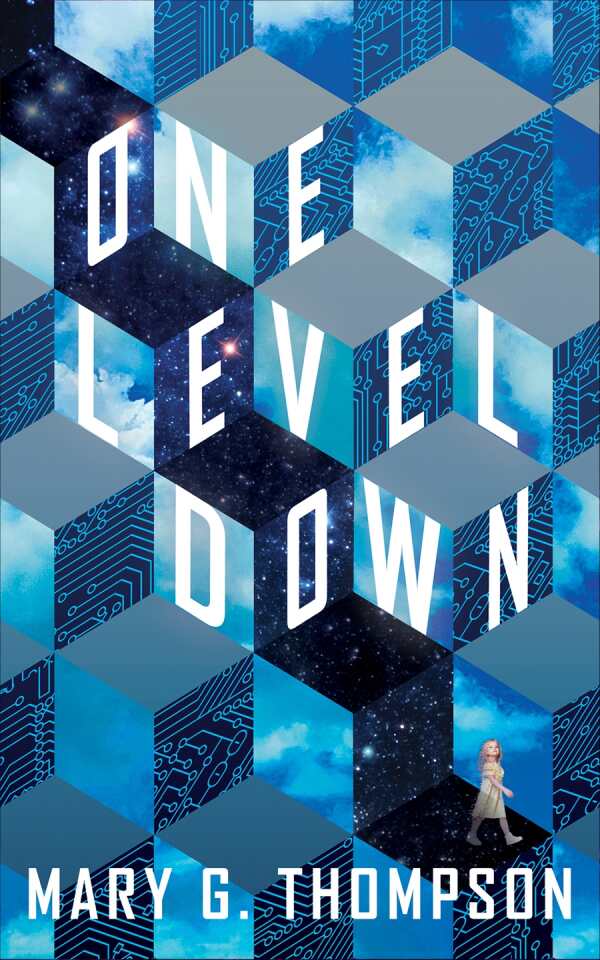One Level Down
In Mary G. Thompson’s empathetic novel One Level Down, a woman forced into a child’s body fights to escape her father’s simulation.
Escaping Earth’s overcrowding and irreparable environmental damage, colonists encounter disease epidemics on Bella Inizio, an otherwise paradisiacal planet. They upload themselves to a simulated version of the world where death is not part of the program. A corrupt corporation takes advantage of their vulnerability in exchange for mining rights on Bella Inizio; they allow the simulator, “Daddy,” to delete colonists who challenge him at his whim.
Ella—a simulation of Daddy’s lost daughter—narrates her fifty-plus-year entrapment in a five-year-old’s body in the simulated version of Bella Inizio. Desperate to escape, she plots to enlist the company’s technician, who uploads himself from the unsimulated “real” world every sixty years to fix coding errors. Burdened by half a century with Daddy, Ella’s unreserved introspection is awash with exhaustive considerations of existence and selfhood; about disappearing simulated elements, she wonders, “What I want to know is, will they [the technician] bring back the same birds, or will they create new birds? Are the birds that disappeared somewhere else?”
Encountering a world of misused science fiction cornerstones (artificial intelligence, distant space travel, manipulated physics), Ella insists on her personhood and freedom. Samantha, Ella’s stepmother, is deleted for challenging Daddy, yet her persistence in Ella’s memory evokes rebellious strength, which is described as akin to how ghosts and poltergeists helped human predecessors cope with death. And Ella pities Daddy, recognizing that his decision to re-create her, though relegating her to permanent existence as a five-year-old, is his twisted way of grieving his original daughter’s death.
A determined woman rebels against her infantilization in the philosophical dystopian novel One Level Down.
Reviewed by
Isabella Zhou
Disclosure: This article is not an endorsement, but a review. The publisher of this book provided free copies of the book to have their book reviewed by a professional reviewer. No fee was paid by the publisher for this review. Foreword Reviews only recommends books that we love. Foreword Magazine, Inc. is disclosing this in accordance with the Federal Trade Commission’s 16 CFR, Part 255.

